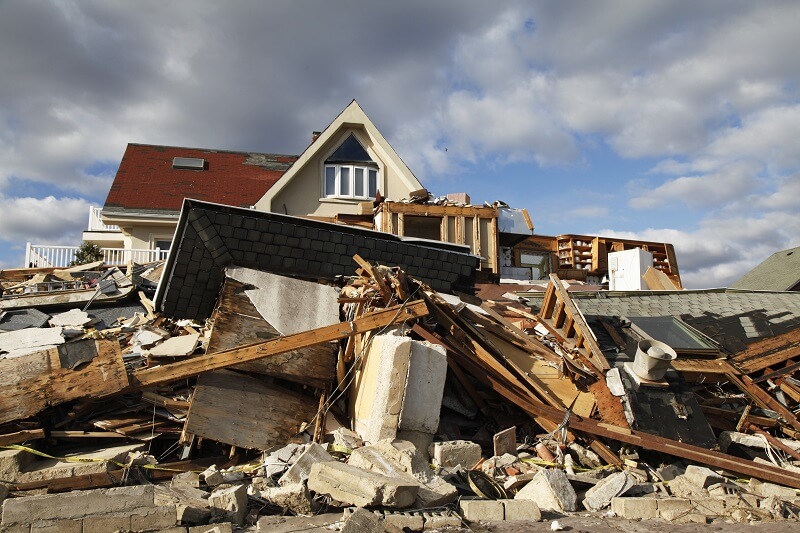Real Estate: How Can I Ethically Invest In Hurricane Zones?

How can real estate investors ethically invest in areas impacted by hurricanes?
The recent spree of record setting hurricanes has come right at a time when thousands of real estate investors are hungry for more deals, and particularly cheaper distressed property deals and motivated sellers. There will be some bad apples out there and opportunistic criminals rushing to take advantage of the situation and individuals and families hurt by these major storms. There are others who are truly good hearted real estate investors who really want to help these individuals and communities, and should be able to be fairly compensated for offering great and valuable help. There is no one, and no organization that can single handedly come in and bail out and save it all. Just like the previous financial crisis, it is going to take private individuals and companies to step up and solve it. They need to make sure their own families are housed and fed in the process, so they don’t just join the lines needing charitable aid either. How can this second group of real estate investors engaged in the right way?
Don’t Judge, Be Ready to Be Judged
It’s easy to jump to assumptions about others during these times. Even, many otherwise very intelligent and good hearted people have leapt to conclusions and rants against good hearted people just trying to do what they can to help. It’s easy to judge and point the finger when you don’t know the full story. For example; a small local pizza joint promoting that they have reopened and will deliver to impacted neighborhoods on Instagram. They may just be trying to do what they can to help feed people and keep them safe, and may not be able to afford to give everything away, because they were almost bankrupted by the storms themselves. Someone else might just say they are trying to make money at the expense of those who are hurting. Someone may be slammed for not opening their home as a shelter, without people realizing they had a mandatory evacuation order. That same person may have been out of the area for a matter of hours, rounding up supplies to take back to their neighbors, even though their home was washed away. So, be careful about judging others without knowing their entire story. Be ready to take some flack, no matter how great your intentions are.
Set Some Principles
The best way to stay on track during the weeks and months ahead are to set yourself some principles and guidelines.
What these are is up to you, but laying them out now will help you stay true to your original mission. At a minimum that will probably be not to price gouge. It will be very tempting for some to jack up the prices of rentals, homes for sale, and services, because there is greater demand, and less supply. This is true of gas, food, insurance, building materials, and housing too. There are laws about this, so you shouldn’t have to think too hard about this.
On the other side of the coin, be wary of making offers that are too low, just because you might get away with it. This is business, and you should look for good deals, but that doesn’t mean you can’t simultaneously offer a fair deal that works for home sellers too. They are hurting, they may have lost everything, and be crunched on cash and out of work. Don’t abuse it. You can still negotiate a fair price for the current condition and market, based on the numbers, and create a true win-win. Then do what you say.
Disclose, Disclose, Disclose
To avoid confusion or false accusations, and make sure you are on the right side to the law, be sure to disclose. The vast majority of issues in the past for real estate professionals have all come down to failing to disclose enough. Err on the side of over disclosing. It may seem unnecessary, or even counterproductive to sales, but you’ll build a lot of trust doing it, and will be sure you are acting in good conscience. It’s okay to say you are going to buy their flood damaged home, and finance the rehab or rebuild and sell it for a modest gain. If they don’t have the money or credit to do that, and need the money you can offer now to go start over elsewhere it can still be a fair win-win. Encourage them to seek a second opinion or legal counsel too. They may not do that, but at least you tried.
Similarly, you may also want to consult your own coach, legal counsel, and get a second opinion from someone outside the industry to double check your approach too.
